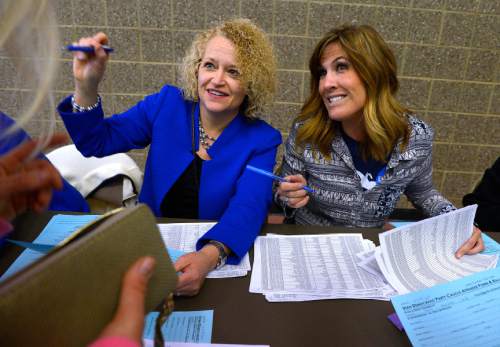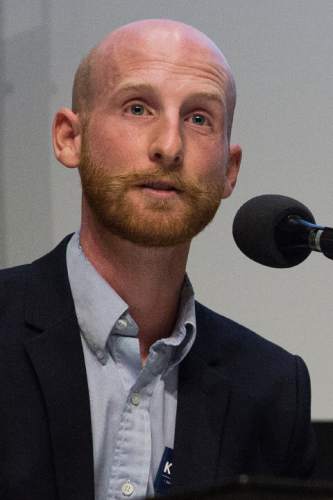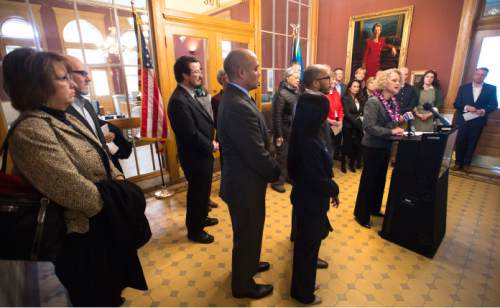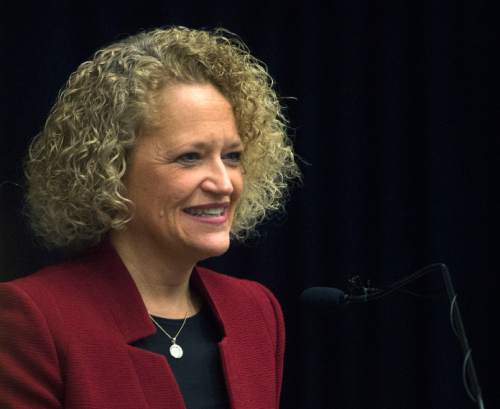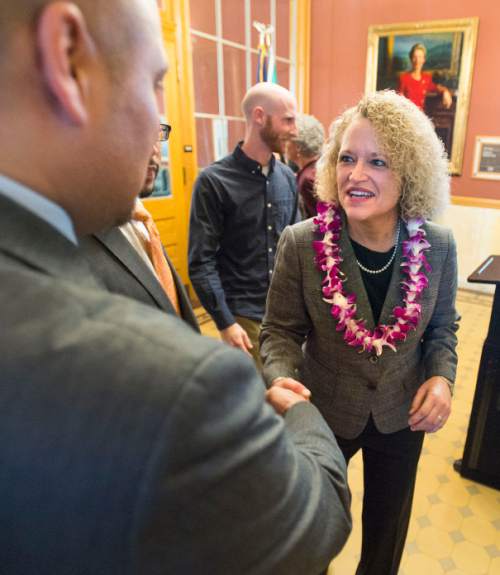This is an archived article that was published on sltrib.com in 2016, and information in the article may be outdated. It is provided only for personal research purposes and may not be reprinted.
The Salt Lake City agency best known for fixing urban blight has become a testing ground for relations between Mayor Jackie Biskupski and members of the City Council.
They are discussing a major overhaul of their shared powers over the city's Redevelopment Agency, or RDA, with proposals that would dial back the council's say in day-to-day agency operations in favor of expanding mayoral control.
Though it would undo how the powerful agency has been run for almost a decade, the rebalancing of administrative and legislative roles is dictated by state law, both sides acknowledge. And the newly proposed RDA bylaws could help streamline dealmaking and boost the city's economy.
So far, though, the debate has elicited some testy exchanges, along with talk of dwindling morale among city staffers and complaints the mayor is moving too slowly in filling crucial job openings.
"It's tough to see this because it's a big change to the Redevelopment Agency," new Councilman Derek Kitchen said. "I would argue it's a massive shift in power, at least the way we've understood it so far."
The RDA is charged with revitalizing run-down urban areas, spurring business and job growth, and creating new housing. A hybrid in city government, the agency has special authority to borrow and loan money, and to buy and sell property.
The mayor said her immediate predecessor, Ralph Becker, as the RDA's chief administrative officer was not governing the agency in the manner envisioned by the Utah Legislature.
With the proposed changes, Biskupski has announced she intends to assume the agency's top executive post, a post that is vacant after she fired D.J. Baxter in January.
State laws, updated in 2008, gave mayors that duty, she said.
"It was important for me as a leader to make sure that I serve my role, which is executive director," she said, "and to make sure that the council, which serves as the board of the RDA, serves its role."
The proposal comes as Biskupski has drawn fire for ousting key department heads during the transition. While she said she plans to delegate management of daily RDA operations to a deputy director, "I'm actually excited to be much more participatory in the RDA process than what has been happening up to this point."
The proposed changes would widen the mayor's authority over RDA personnel, including hiring, firing and setting compensation. The RDA board/City Council would see diminished powers over land deals and project details as well as changes in how it interacts with its advisory council.
City Council members say they are still working to understand what this shift may mean. Even as budget deadlines approach, they voted last week to delay approval of the RDA's latest spending blueprint until the contours of their new roles become clearer.
"We've heard about it," Councilman James Rogers told his colleagues. "But until we actually see a staffing document ... I really have a hard time trying to approve it."
Biskupski views rebalancing RDA powers as part of her vision for bringing the agency's 18 project managers, financial analysts and support staffers under a newly elevated city department devoted to economic development, to be led by a new director.
"That alignment of resources and focus and knowledge will be extremely helpful in how we develop our city and the opportunities we create for people," the mayor said. "That serves everyone well."
Council members see the same potential, but note that coming to terms with newly defined powers and pulling back from years of fine-grain engagement in redevelopment affairs could be a big adjustment.
Several of them clashed with the mayor in recent talks about whether the overhaul would require additional City Hall staffers.
"Please do not speak unless you're called on," Councilwoman Lisa Adams, who also heads the RDA board, told Biskupski during a meeting a week ago.
"You act like we're doing some tricky thing," Adams told the mayor. "We're not doing anything tricky."
"The public needs to keep an eye on this. That's all I'm saying," the mayor shot back, bristling over a perceived suggestion that RDA reforms amounted to "growing government."
"That is just simply not the case," Biskupski insisted.
Councilwoman Erin Mendenhall called for ways to discuss the RDA proposal in a "collaborative investigation. Right now it doesn't feel collaborative."
Kitchen and other council members noted later that some of their concerns relate to broader worries about the emerging Biskupski administration.
City employee morale, Kitchen said, "is floundering to a certain degree." Four department head jobs remain vacant, he noted, including the post of economic development director.
"There's a lot going on in our city," Kitchen said. "Now that we're four months into this change in administration, my hope is that we can start to turn a corner and get to a point where we're stable."
Twitter: @TonySemerad


